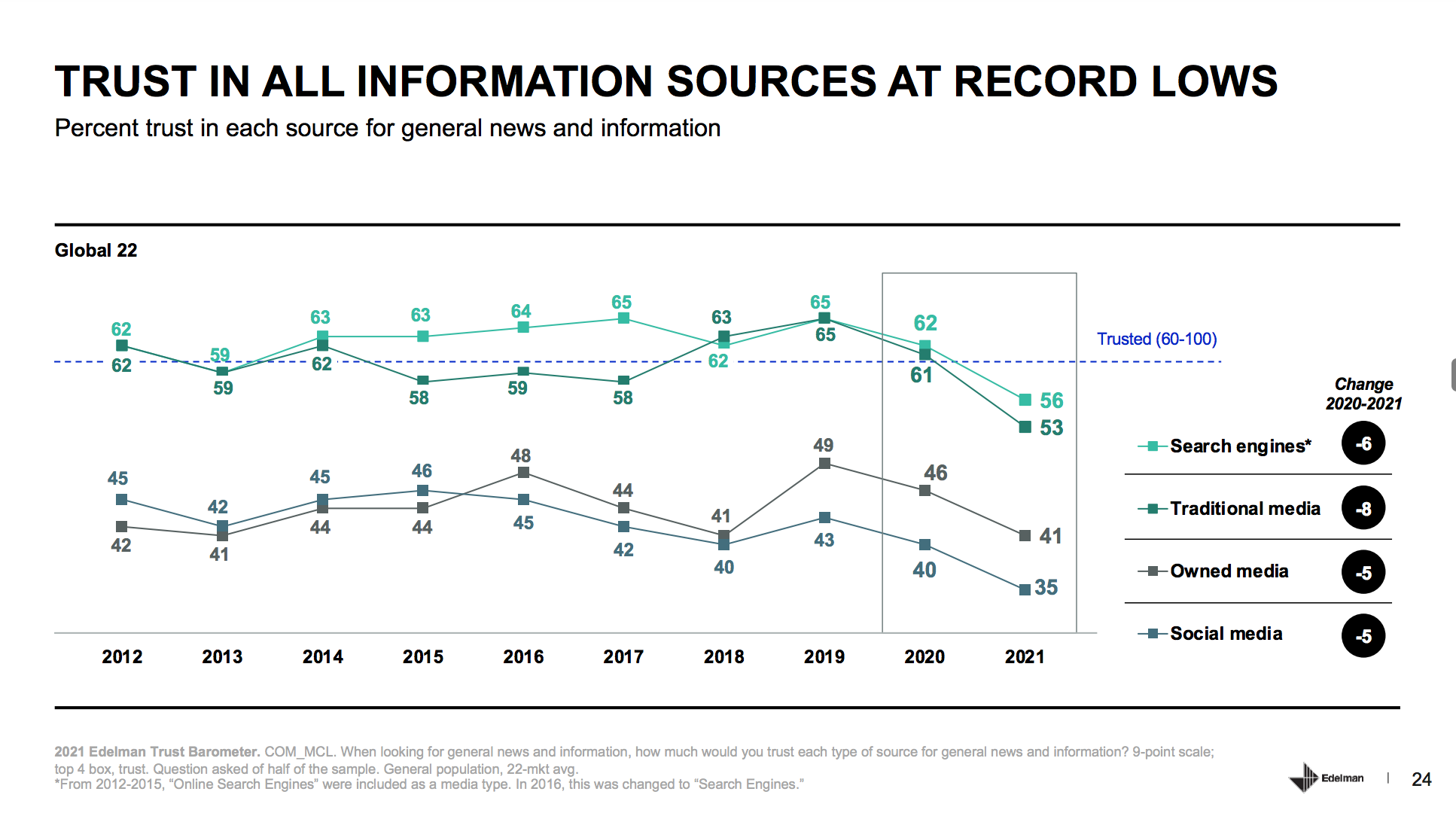On trust (and being trusted).

We've got a major trust crisis on our hands.
A recent report from Edelman Trust Barometer paints a stark picture of declining trust, basically across the board.
Let's start with the dramatic decline in the trust we have in our information sources.

Unsurprisingly, social media consistently ranks the lowest. And with good reason.
But the real story here is the massive decline in trust with our search engines and traditional media - two information sources that we absolutely need to be able to trust to have a hope of agreeing to basic facts about the world, and living in a shared reality.
The rise of "Fake News", and the implications of it, are detailed in this Atlantic article from a few years ago. Interestingly, the problem is less about the consumption of the fake news itself, but the decline in trust and consumption of news and information in general.
Next up, the problem with business being our only trusted institution.
Want to dig into trust, and how we can rebuild it? Join us for a lunch and learn session on February 17th.
According to the report, and the graphic that I used as the banner image, "business" is currently the only institution seen as both ethical and competent. Both "media" and "government" remain in the unethical + incompetent territory, with NGO's being see as the most ethical, but less competent than business counterparts.
In an era where billionaires are racing each other into space instead of tackling, well, anything resembling a real-world problem, how exactly does "business" win the prize of most trusted institution?
Here's the thing.
We live in a capitalist world. I get it.
And we simply cannot allow "business" to be the sole saviour of our society, in the same way that we shouldn't let any institution or system be the sole arbiter of truth and trust.
Business is incentivized to exchange value (products and services) for money.
Businesses are not incentivized to solve real social problems like poverty, environmental degradation, domestic violence or any number of problems that the NGO and charitable sector are working on every day.
Nor should business be providing us with our news and information, or be the sole filter of that news (cough, cough, Facebook, Twitter, Google).
And of course, business should not be drafting and enforcing the laws that govern civil society - as much as we all love to hate our governments, that's what we elect them to do in a democracy.
We need all of our institutions to do, and be, better.
And, WE need to do, and be, better.
We need to listen more and deeper.
We need to question why the algorithms are feeding us information that we agree with all of the time.
We need to hold our politicians accountable.
We need to call out misinformation and disinformation when we see it.
We need to be active participants in both promoting ethical and competent behaviour, and not tolerating anything less from our leaders, be they in business, media, government or NGO's.